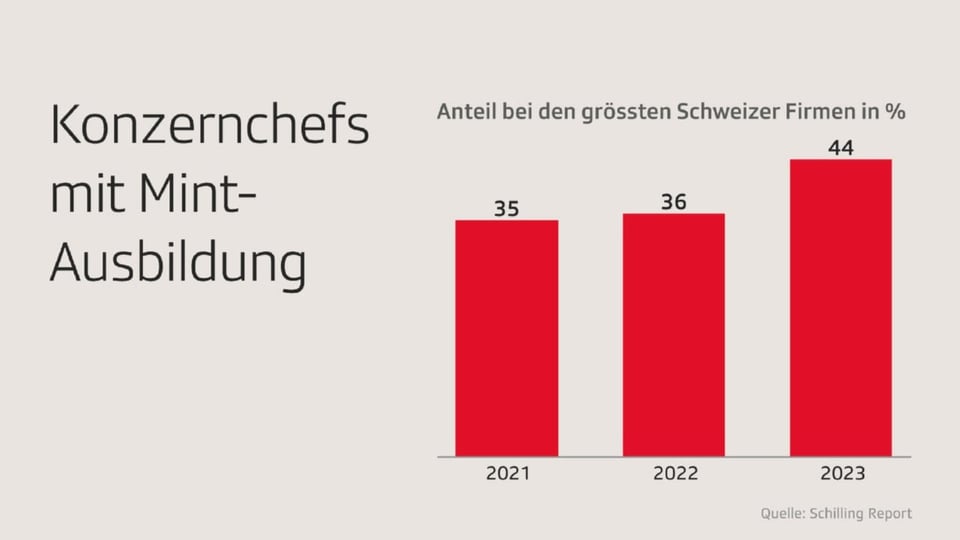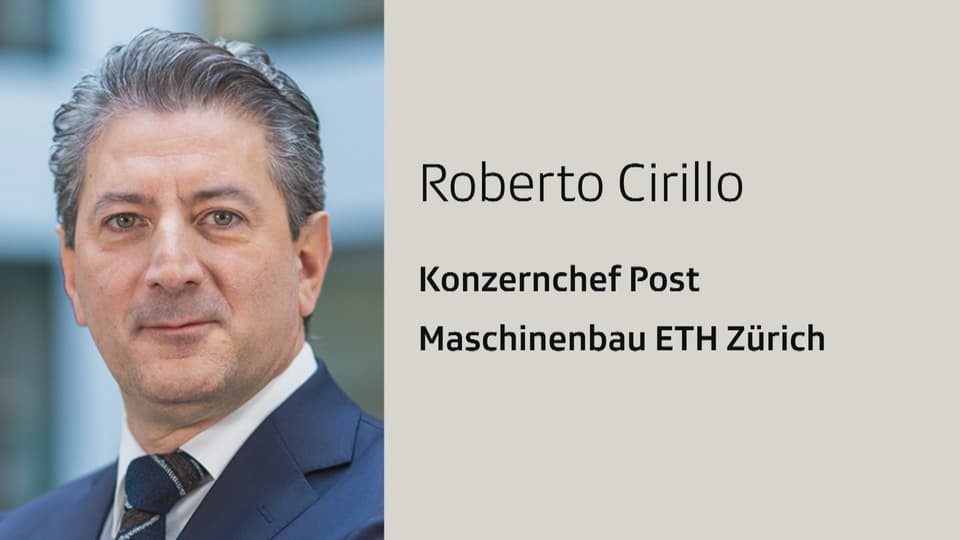At Roche, a molecular biologist replaces the lawyer Severin Schwan with Thomas Schinecker. He confirms such a trend.
Severin Schwan, the highest paid manager in Switzerland for a long time, cleared his executive chair at the Roche General Assembly. He is new to the board of directors of the Basel pharmaceutical company. Thomas Schinecker will take his place as CEO. This is neither an operational economist nor a lawyer – like swan one – but a doctorate in molecular biologist.
Scientists and engineers as CEO
Roche is thus following a trend: natural scientists and engineers are increasingly taking over the top positions at large companies, replacing people who initially studied economics or law. To put it bluntly: more ETH instead of HSG.
This is shown by an evaluation by headhunter Guido Schilling, who examines the executive floors of the 100 largest Swiss companies with his annual Schilling Report. The proportion of CEO with MINT training, i.e. in mathematics, computer science, science or technology, has increased from 35 to 44 percent in the past three years.

Legend:
SRF
“The time when people believed that a manager with a business understanding could run any company is over,” says Guido Schilling. Because the topics in the economic world have become more complex and the challenges for companies have gained complexity.
“Natural scientists have already oriented themselves on a white sheet during their studies to find solutions for the future. And it is precisely this competence that is required in order to lead the company into the future,” says Schilling.
Many ETH graduates
ETH graduates in particular have recently taken over the reins at large companies: Christoph Aeschlimann at Swisscom, Suzanne Thoma at Sulzer, Roberto Cirillo at the Post Office and Philipp Rickenbacher at Julius Baer (see gallery above).
Other examples of the general trend in recent years: computer scientist Denis Machuel at Adecco, materials engineer Silvio Napoli at Schindler, electrical engineer Daniel Schafer at BLS, physicist Fabrizio Petrillo at Axa or technical engineer Björn Rosengren at ABB.
The big challenge is that companies recognize highly qualified experts at an early stage so that they can make it to the very top.
Natural scientists and engineers naturally have to acquire business knowledge during their careers, says Guido Schilling. Many would therefore do additional training. However, the companies are also responsible here.
“The big challenge is that the companies recognize highly qualified experts early on in relation to their management potential and then develop them through international management tasks so that they also make it to the top.”
That was the case with Thomas Schinecker: After obtaining his doctorate, he went to Roche. There he was greatly encouraged. During the 20 years at the pharmaceutical company, he worked in six different countries in Europe, Asia and America. This is how the molecular biologist got the remaining tools for the job at the head of Roche.





